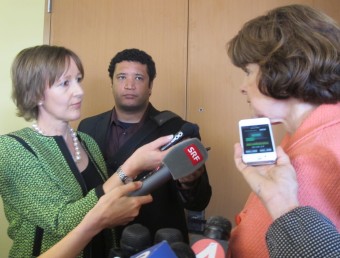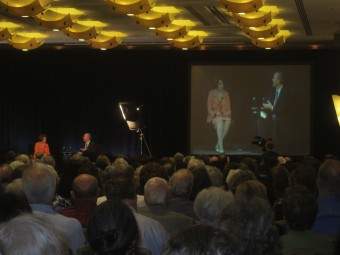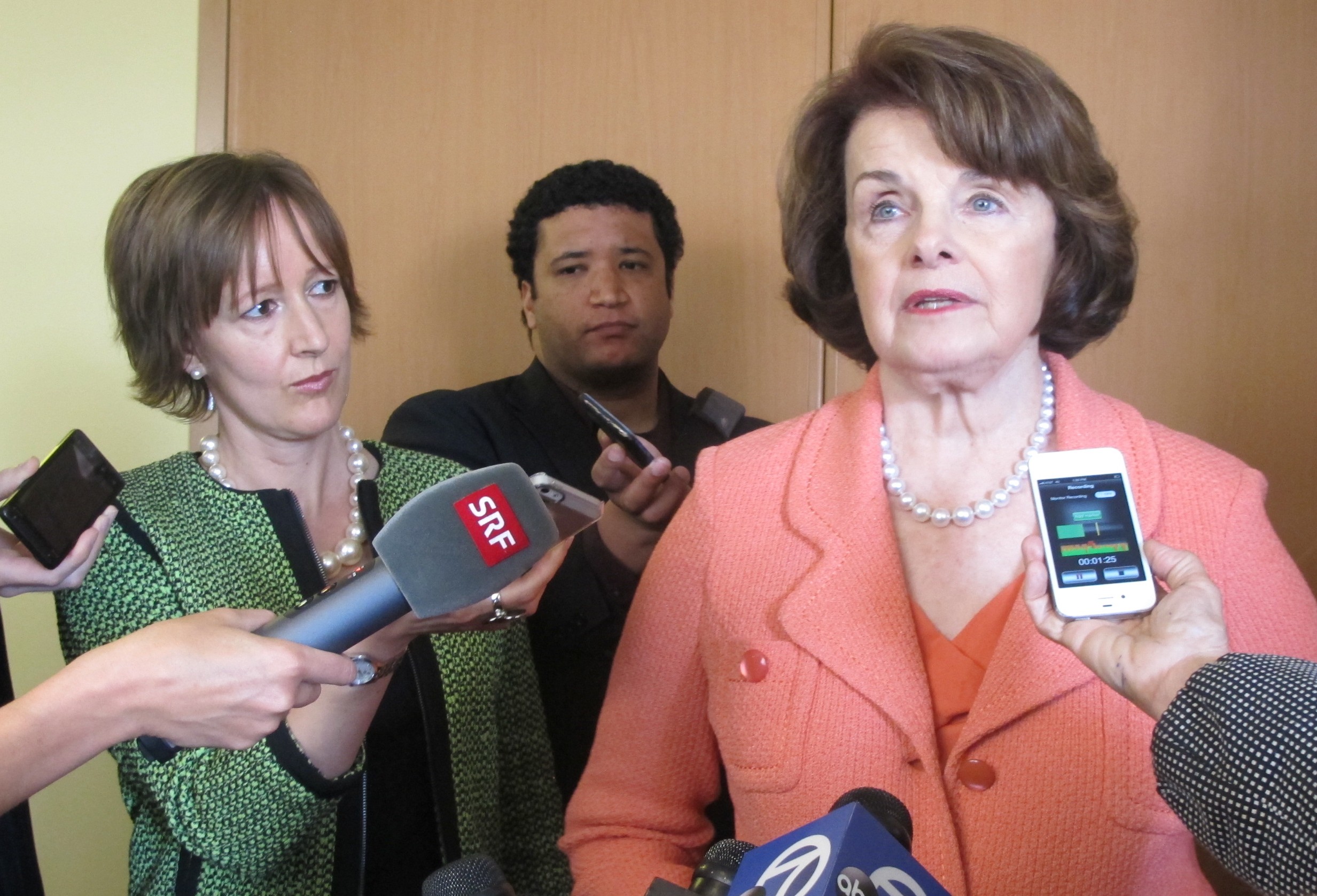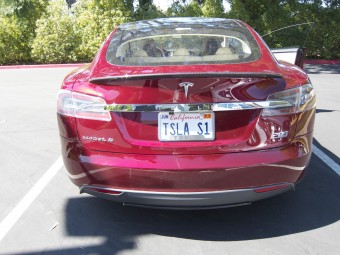Senator Dianne Feinstein shared her plans to introduce a new “carbon fee” bill, during a press conference Wednesday in downtown San Francisco.
“I think a carbon fee is growing in popularity,” said Feinstein, after an appearance at the Commonwealth Club. Her plans follow President Obama’s SOTU call for “market based solutions to climate change,” and a growing consensus among experts in favor of using the taxation system to control carbon dioxide emissions.
She referred to her colleague, Senator Barbara Boxer’s recent bill (co-sponsored by Sen. Bernie Sanders), which proposed a “carbon fee and dividend scheme” that would tax carbon emitters, such as coalmines, at the source. Here’s the rationale:
- By increasing the price of fossil fuel in the market…
- It levels the playing field between carbon-based fuels and renewable fuels, such as wind and solar, making renewables more competitive and attractive to consumers and investors.
- A portion of the “dividend” (the carbon “fee” proceeds) would be refunded to US residents.
Similar schemes have been implemented in British Columbia, Sweden and Ireland with some success. The aim is to encourage consumers to see the true cost of their energy choices. The fee represents some of the externalities of choosing fossil fuel, such as particulate pollution and greenhouse gases, which contribute to climate change.
 Feinstein’s proposal was short on details, but she confirmed, “It’s my intention to introduce a fee of $10 a ton and we’ll see what happens to it.”
Feinstein’s proposal was short on details, but she confirmed, “It’s my intention to introduce a fee of $10 a ton and we’ll see what happens to it.”
The Boxer-Sanders proposal is for a tax (or “fee”) of $20 per ton of carbon. Presumably Feinstein feels it’ll be more palatable to start at a lower level and gradually phase in a higher tax over several years.
Feinstein acknowledged that with other issues stealing center stage (notably saber-rattling in North Korea and the ongoing domestic gun control debate), climate change is not currently on the government’s “high priority list,” so it’s hard to predict what progress the government will achieve.
Nevertheless, Feinstein was vocal on the topic of climate change and bullish about renewable energy during an earlier interview with the Commonwealth Club’s Greg Dalton:
On the threat of Climate Change 
“People don’t really understand. They think the earth is immutable. They think we can’t destroy it, that it’s here to stay. It’s not so… As we fill the atmosphere with pollutants: methane, carbon dioxide, other things…it warms the earth. And it begins with animal habitat disappearing, the ocean beginning to rise, more violent hurricanes, tornadoes…drought is more prevalent.”
“What’s going to be the ultimate change is weather. People see weather, they see the devastation and so eventually people are going to come around to support restrictions on carbon dioxide, maybe a fee on the use of carbon to replace our deficit, our debt. A $20 fee (per ton of carbon or methane equivalent) is like $1.2 Trillion in revenue over 10 years. If you just take half that: $600 Billion.”
“I wouldn’t say there’s much (support in the Senate) but I would say this: people are coming to realize now… climate change is getting worse. Actually since 2008, ‘good energy’ has doubled. Electric cars are being more prevalent, hybrids are being more prevalent. People are saving money. Good things are happening. The question is: can we really bite the bullet and make the decision that we’re going to save the planet?”
On the Keystone Pipeline
“I’m told the area in Alberta (Canada) is bigger than the state of Florida, I’m told it’s a forested area which they mow down and begin to dig the huge giant lakes which they pour chemicals in to produce this form of tar sands oil. The earth is defaced forever.”
“Now we have to make up our minds: do we want to deface large portions of our earth forever? I don’t think so because we’re making progress on clean energy and that ought to really be where we go.”
“Some people say if the pipeline isn’t built north-south through the center of our country, they’re only going to do it east to west and send it to China. That’s not a good argument.”
Feinstein urged the audience to read the latest article on tar sands from National Geographic.
On California’s Monterey Shale Reserves
“I don’t think candidly that it’s all that necessary. There will be no oil drilling off the coast of California, if Senator Boxer and I prevail, and we have so far. My emphasis would be on clean energy: the wind farms, the solar facilities and there’s so much research going on on different forms of fuel. Leave those fossil fuels alone because they pollute the atmosphere.” Read more on the country’s largest shale oil resource from KQED.
On Tesla’s Model S
“I sat on one (a Tesla Model S) out at the Tesla Fremont plant. I kind of dented the fender. But anyway…” (laughter)
Feinstein drives a Lexus hybrid
On California’s water shortages
“We’re on our way to a much drier climate…the Sierra Nevada snowpack’s drying up and it’s very serious…The key is: we need to store more water from the wet years and hold it for the dry years and this environmentalists don’t like. It may mean raising a couple of dams (eg Shasta)…I do believe that the time is now to have a storage water bond. The most important thing we can do for our state is to hold water from the wet years for the dry years and we should get that done (or) we’re going to lose our agriculture… I live in Washington now for a lot of the time and I can tell you the crops grown in California taste much better than most places in the world.”
On subsidies to oil and gas
“I think the day has come for subsidies to go for industries other than startups like some of the clean energy…solar. As you know, everything is “cut cut cut” back there (DC) right now. With sequestration cutting another $85 Billion before the beginning of the fiscal year and the amount goes up. So there’s going to be cut after cut after cut. And they’re big cuts. So I think we need to look at tax reform and we need to look at all those deductions and remove a lot of them and we also need to look at our entitlements programs.”





